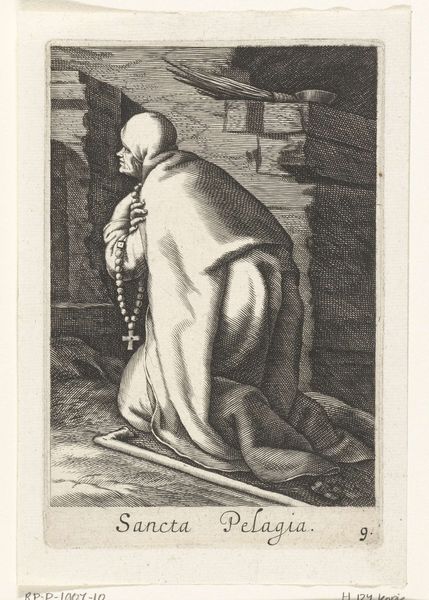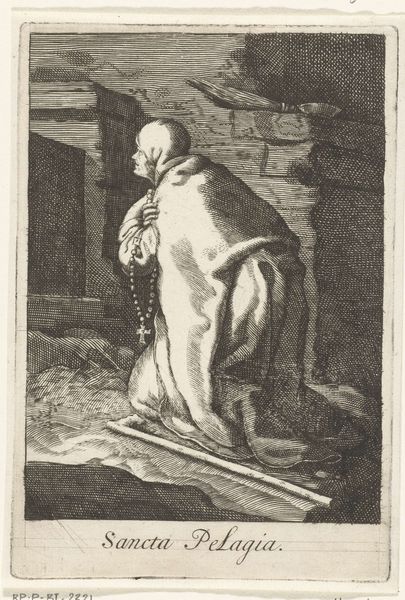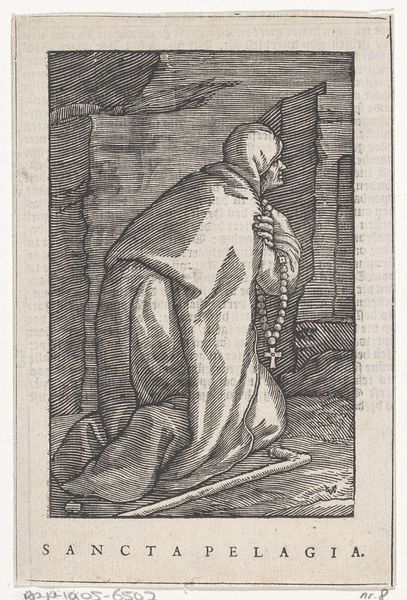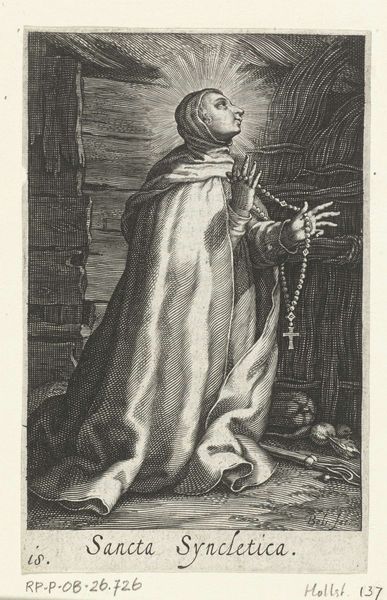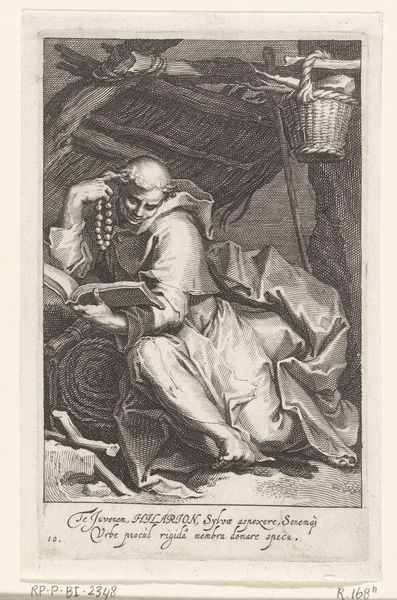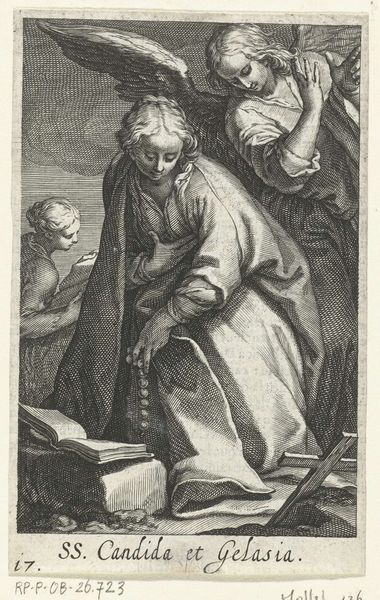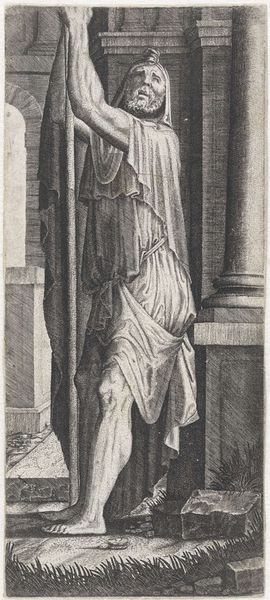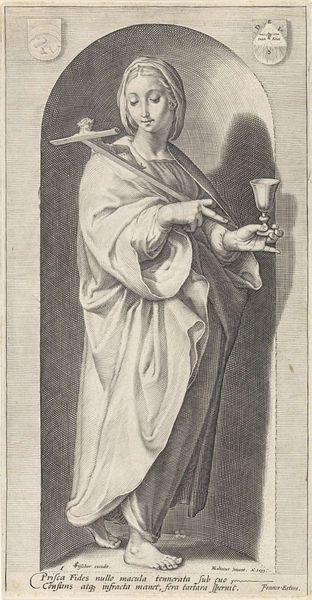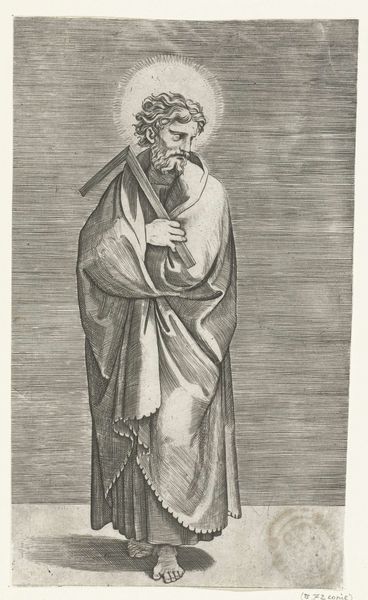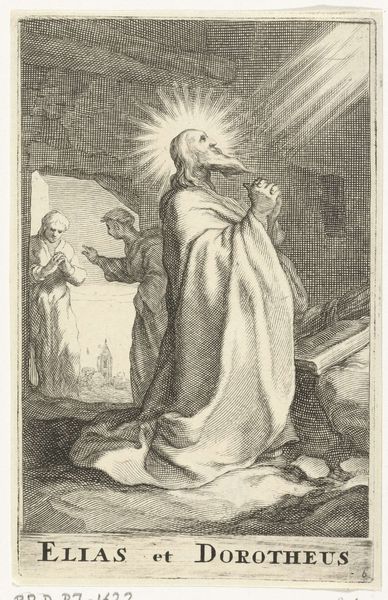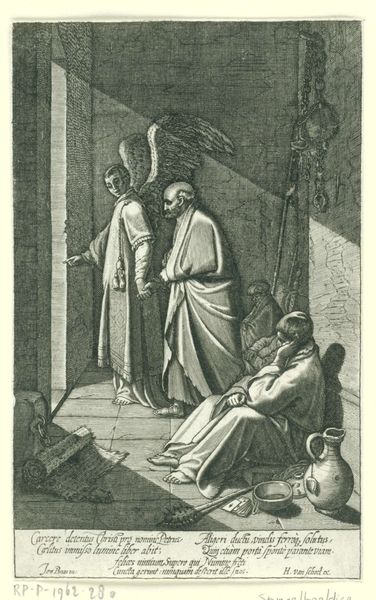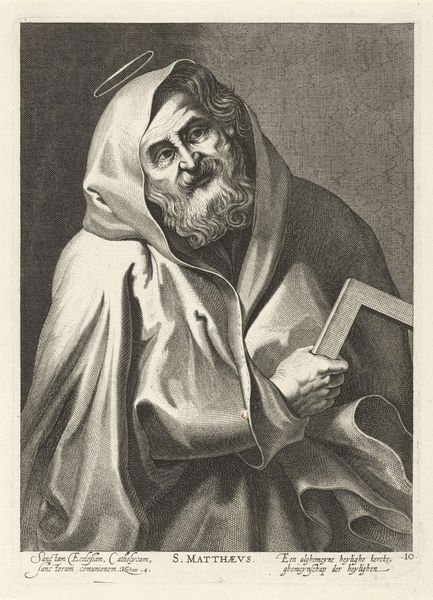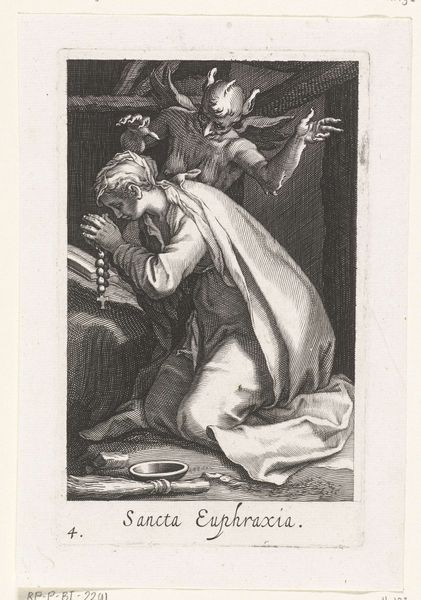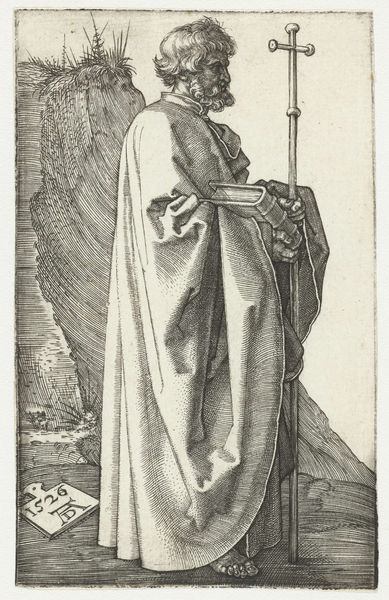
print, engraving
#
portrait
#
baroque
# print
#
old engraving style
#
caricature
#
figuration
#
line
#
engraving
Dimensions: height 138 mm, width 89 mm
Copyright: Rijks Museum: Open Domain
Boëtius Adamsz. Bolswert created this engraving of Saint Pelagia of Antioch, a penitent hermit, sometime in the 17th century. The image presents a figure kneeling in prayer, a rosary clutched in her hands, her face gaunt, turned towards the light, with only a walking stick and straw bedding for comfort. The Catholic Reformation, by way of the Council of Trent, revived hagiography as a didactic instrument, a way of encouraging the laity towards piety. Bolswert's print belongs to a flourishing visual culture of devotional images intended for private contemplation. Its starkness likely sought to inspire the faithful to emulate Pelagia's sacrifice. The art market during this period saw an increase in the production and consumption of such works, reflecting the church's renewed emphasis on personal piety and the growing influence of religious orders. To fully understand this work, researchers consult prints and drawings collections, as well as theological and historical texts. By studying the image in its social and institutional context, we gain insight into the interplay between art, religion, and society.
Comments
No comments
Be the first to comment and join the conversation on the ultimate creative platform.
